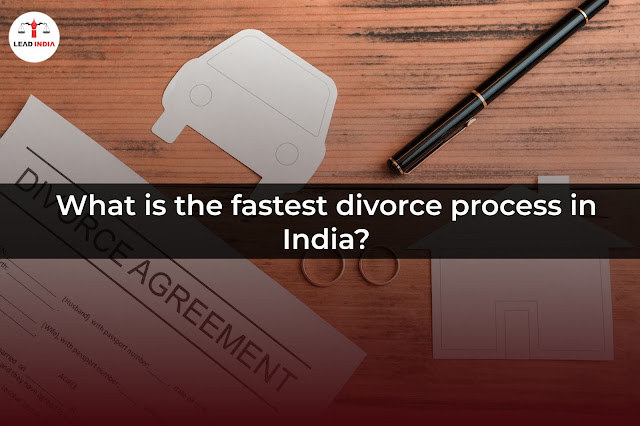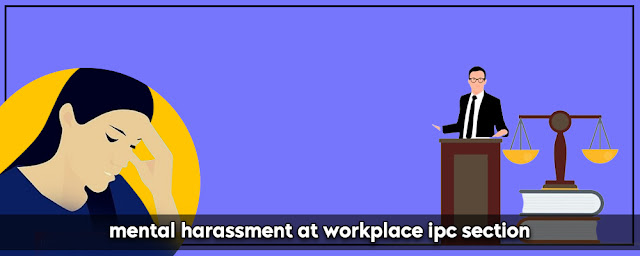What is the fastest divorce process in India?
According to Section 13B of the Hindu Marriage Act of 1955, mutual consent divorce is the divorce procedure that is completed the quickest in India. Through this procedure, couples can agree to divorce instead of going through drawn-out and difficult court proceedings. The following prerequisites must be satisfied before the mutual divorce procedure in India can be started:
Mutual consent: To obtain a divorce, both partners must consent to it and file a joint petition with the court.
Separation: Before submitting a divorce petition, the couple had to have lived apart for at least a year.
A less complicated method of securing a divorce is offered in the section on divorce by mutual consent. It specifically outlines the prerequisite of living apart for at least a year and also includes a cooling-off period of between 6 and 18 months following the filing of a divorce petition. By providing adequate time for reflection, the section might be considered as a midway ground for facilitating divorce and reconciliation. Additionally, the courts are required to use all reasonable means to uphold marriage.
Mutual consent during the divorce filing process:
Filing of the family court petition: In order to dissolve their marriage and obtain a divorce decision, both spouses jointly petition the Family Court on the grounds that they are unable to work out their differences and coexist peacefully. In light of this, they either mutually chose to get divorced or had been apart for at least a year. This petition shall be signed by the parties hereto.
First Motion for Divorce Appearance before Family Court Judge: Both parties will show up in court with their respective counsel in tow. The petition's text as well as all the court-presented documentation will be examined by the Family Court Judge. If the spouses' problems cannot be settled, the court may attempt to do so; if not, the case continues.
Joint Oath Statement: Prior to approving the first motion, the court may order that the parties' joint statements be made under oath, signed by each party and their respective solicitors, and taken under oath.
First Motion Order Adoption, Six Months The court issues an order in response to the first request. The second motion has a deadline. After that, there is a six-month cooling-off period before the second motion can be filed by any party in a divorce. The second motion may be filed up to 18 months following the filing of the divorce petition in family court.
The Second Motion and the Decision's Hearing: The parties decide to proceed with the lawsuit and appear for the second motion, which kicks off the final hearings. This includes parties appearing in front of the Family Court and making recorded joint statements.
If the court determines after hearing from the parties that the information in the petition is accurate, that there is no chance of reconciliation and cohabitation, and that all outstanding issues regarding alimony, child custody, properties, and other matters are resolved, it may issue a divorce decree declaring the marriage to be dissolved. The divorce is regarded as complete once the court has issued a divorce decree.
Since both parties must agree at the time of the second motion, any party may withdraw their consent prior to the decision of mutual consent divorce. Either the husband or the wife may revoke consent prior to submitting the second motion petition. However, the court has adopted a strict position against parties who have misused the first motion to their benefit.
The Hon'ble Delhi High Court ruled in the case of Rajat Gupta vs. Roopali Gupta in 2018 that if consent is denied following the recording of a statement in the first motion, a procedure under the Contempt of Court Act of 1971 may be commenced against the defaulting party.
If the petition is filed in Gurgaon, then a divorce lawyer in Gurgaon may be hired. Furthermore, a divorce lawyer in Mumbai may be hired if the petition is filed there.
To address the problem, Lead India provides a selection of data, legal services, and free legal advice online. To get the best guidance in this case, ask a legal question online and talk to a lawyer.
SOURCE:-
Visit us: — https://www.leadindia.law
Call Us: +91–8800788535
Email: care@leadindia.law
YouTube: — https://www.youtube.com/c/LeadIndiaLawAssociates
Facebook: — https://www.facebook.com/leadindialaw
LinkedIn: — https://www.linkedin.com/company/76353439
Twitter: — https://twitter.com/leadindialaw
Pinterest: — https://in.pinterest.com/lawleadindia
Instagram: - https://www.instagram.com/leadindialawofficial
Read Also:-
Court Marriage Lawyers in Ghaziabad




Comments
Post a Comment